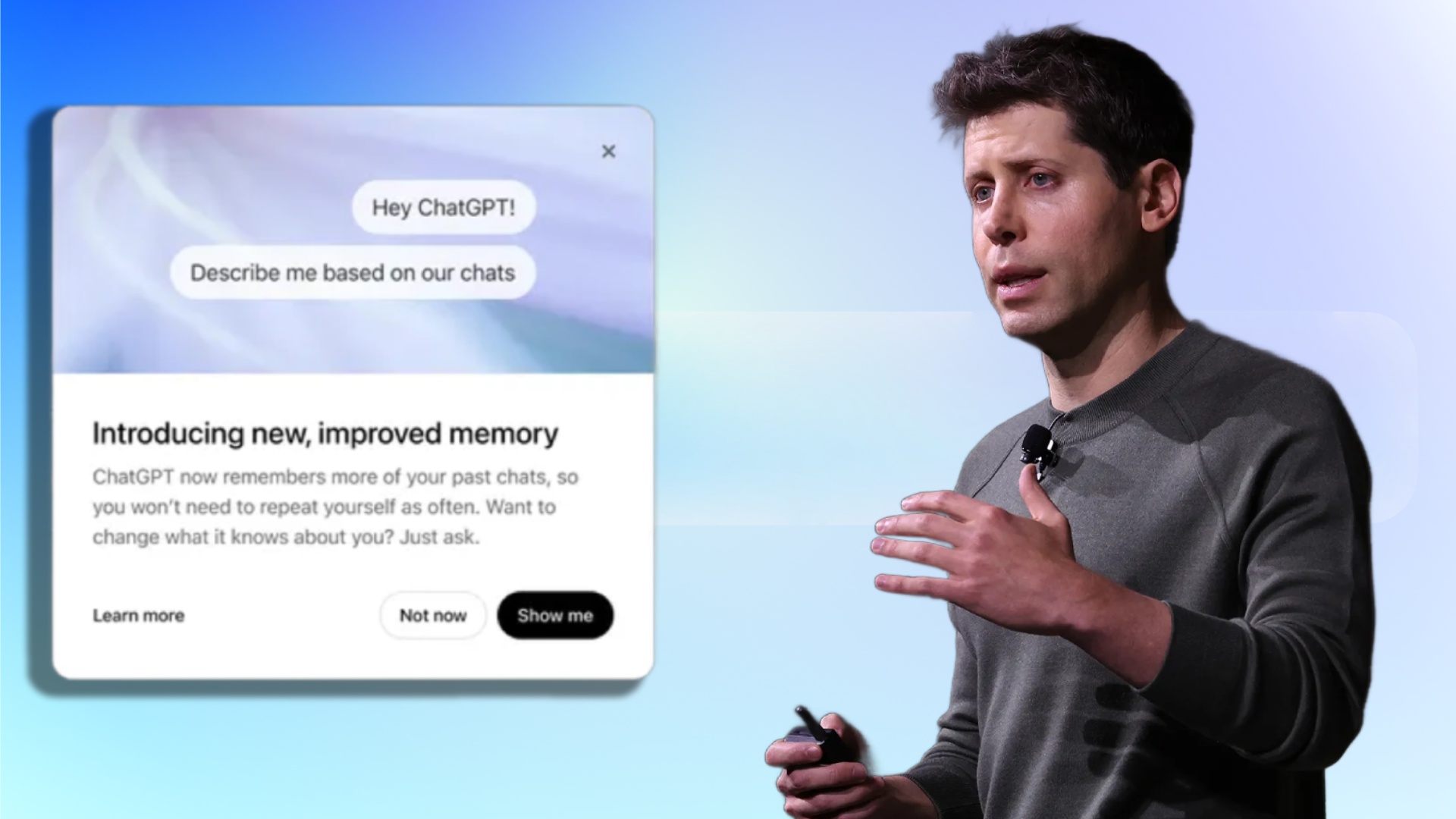OpenAI rolls out memory upgrade for ChatGPT as it wants the chatbot to “get to know you over your life”

Table of Contents
OpenAI has announced an upgrade to its ‘memories’ feature in ChatGPT, which can now reference all past chats to provide responses based on a user’s preferences and interests. This means that whenever you start a new conversation, ChatGPT will be able to utilize previously shared information, enabling more context-aware interactions. The new memory feature will roll out first to ChatGPT Pro and Plus subscribers, except for those based in the U.K., EU, Iceland, Liechtenstein, Norway, and Switzerland.
It's worth noting that the memory feature in ChatGPT isn't new and has actually been around for more than a year, allowing the chatbot to save conversations, especially when you ask it to, or even preferences like avoiding the use of bullet points in future chats. However, before this memory improvement, ChatGPT didn't have the ability to remember everything and could mix up conversations after a certain point.
CEO Sam Altman wants ChatGPT to “get to know you over your life”
We also got a quick glimpse of this new capability via OpenAI on X, where, when ChatGPT was asked “what we talked about this weekend,” it went on to summarize the topics discussed into bullet points broken out by day. Interestingly, in a post on X, OpenAI co-founder Sam Altman shared his thoughts on the new improvements, saying:
“This is a surprisingly great feature imo, and it points at something we are excited about: ai systems that get to know you over your life, and become extremely useful and personalized.”
OpenAI CEO, Sam Altman on X

Obviously, not everyone is comfortable with the idea of handing over all their information to ChatGPT, so you can turn off the Memory feature from Settings. Alternatively, you can use the Temporary Chat feature, which lets you have a conversation without using or affecting memory. Apart from the $200 Pro subscribers, OpenAI has said that $20 Plus subscribers, which include Team, Enterprise, and Edu users, will get access in a few weeks. But there’s no word yet on when it will roll out to free users.
